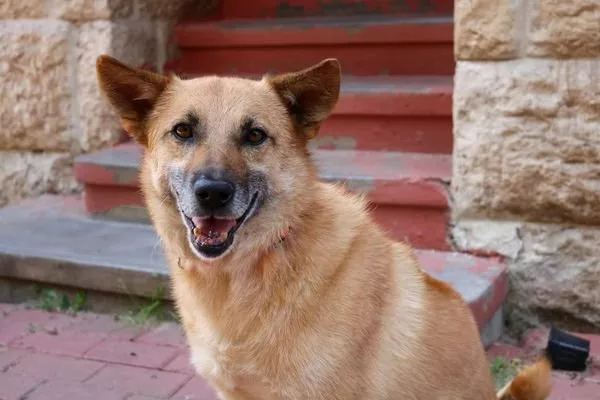Although neutering is the main focus of our mission, we do strive to find loving homes for some of our dogs and every day, we see posts online discussing the topic of international dog rescue and rehoming. The vast majority of these comments acknowledge the valuable efforts of the rescue community, yet there are a few well -meaning but ill-informed commentators that perpetuate myths and misconceptions about overseas adoption.
Adopting any dog – UK born or not – can come with its challenges, but sadly, it is Romanian dogs that seem to attract that extra dose of negativity. Please allow us to set the record straight for reputable charities such as ours.
Mythbuster 1:
Romanian dogs ARE NOT inherently aggressive and dangerous.
This myth stems from a stereotype about stray dogs in Romania being aggressive as a result of surviving tough conditions on the streets. However, like dogs from anywhere in the world, their behaviour largely depends on their individual temperament. That’s why we thoroughly assess every single one of our dogs to ensure they will be a wonderful companion when given the chance in a loving, patient home. Don’t just take our word for it: The Veterinary Record 2020 Survey found that when it comes to challenging behaviour in overseas rescues, the ‘overall the prevalence seems comparable to UK rescue dogs.
Mythbuster 2:
Our dogs DO NOT introduce diseases into the UK
While it’s true that some stray dogs may have health issues, we provide the necessary medical care, vaccinations, and spaying/neutering before adoption to ensure our imported dogs pose no threat to UK populations. Our pre-adoption screening and vaccination protocols are incredibly robust: full blood testing for Leishmania, Brucellosis, Giardia, Heartworm, Babesia, Ehrlichia, Lyme Disease and Anaplasma among others, as well as Parvovirus and Corona for puppies.
They’re also vaccinated and stringently health checked, all of which is correctly evidenced in the passport and health book. This testing goes far beyond that of UK rescues and breeders to ensure you will receive a healthy dog. Additionally, many of our adopters find that their rescue dogs are more resilient than purebred dogs and thrive with proper care.
Mythbuster 3:
Former street dogs CAN be trained to live in homes
Like dogs from UK rescues, some of our dogs have experienced trauma that can impact them. And while some may require additional patience and training due to their backgrounds, we will only rehome dogs that we assess as capable of learning and adapting given the right approach. Additionally, often the animals we rescue have previously lived in homes and therefore know how to obey basic commands. Finally, the majority of our adopters find that rescue dogs are eager to please and will easily learn with positive reinforcement training.
Mythbuster 4:
UK shelters are NOT filled with our abandoned dogs
We want all our rehomed dogs to be safe and happy in their new homes and that is why we offer full rescue back up. The first stage is offering advice to nip any potentially difficult situations in the bud. The second is support from one of our trained behaviour specialist. And on the rare occasion that any issues are not resolved, our contract with the adopter states that the dog MUST be returned to us.
Mythbuster 5:
Romanian dogs DO have a place in the UK
Last but not not least, the argument we hear the most: you shouldn’t import dogs from overseas when shelters are bursting with UK-born dogs. Well, where to start? Firstly, our work overseas is not to blame for the abundance of unwanted dogs. Instead, the blame lies with unscrupulous backyard breeders who exploit their pets for multiple litters. Or perhaps the large scale puppy mills profiting from the factory-farming of fashionable breeds. Or people who buy dogs on a whim on social media or internet sites then panic in the face of responsibility. Instead of pointing the finger at us, why not target the true culprits and press for tighter controls on breeding and re-selling?Overall, we believe that all animals in need deserve a chance at a better life, regardless of their location, and that our duty is to save these animals from dire situations.
For us and our supporters, every dog deserves a home, no matter where it was born.
